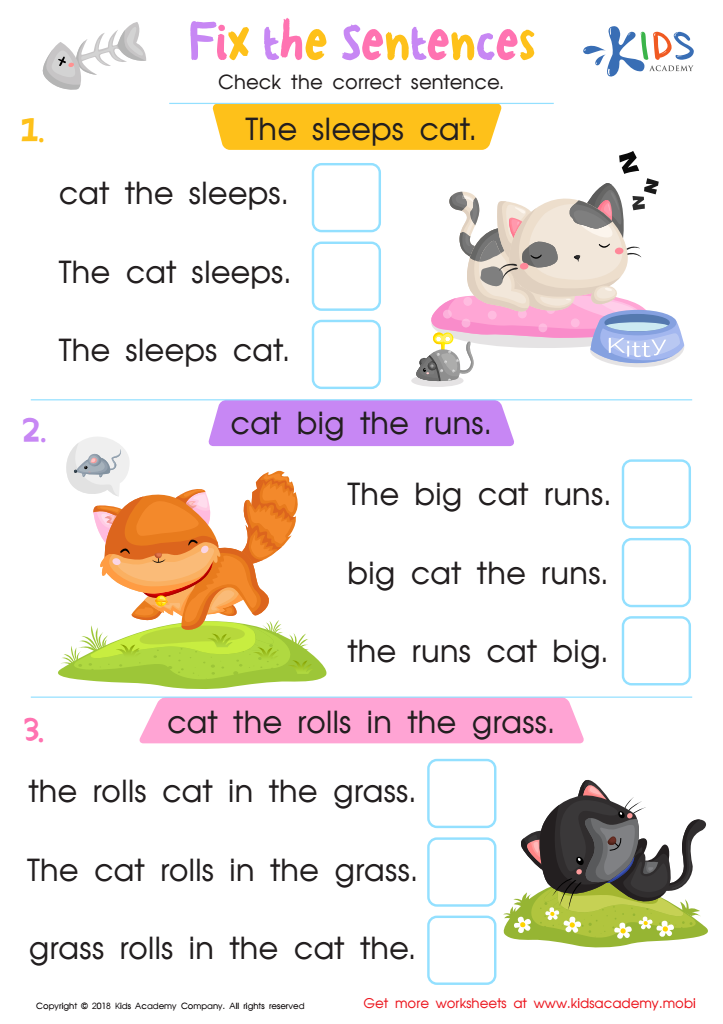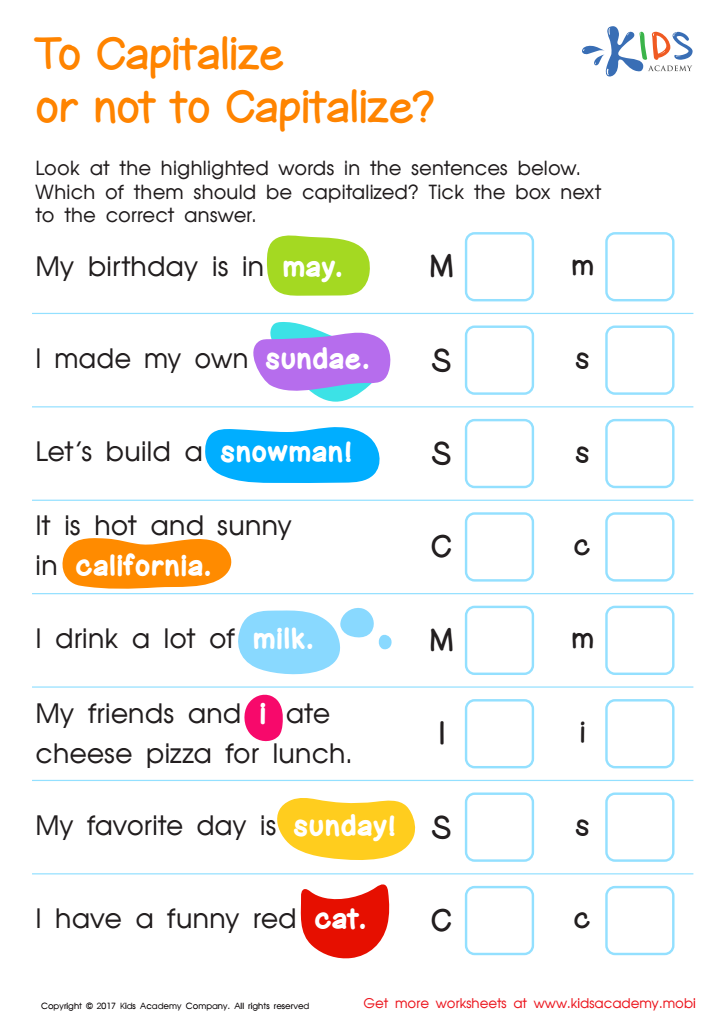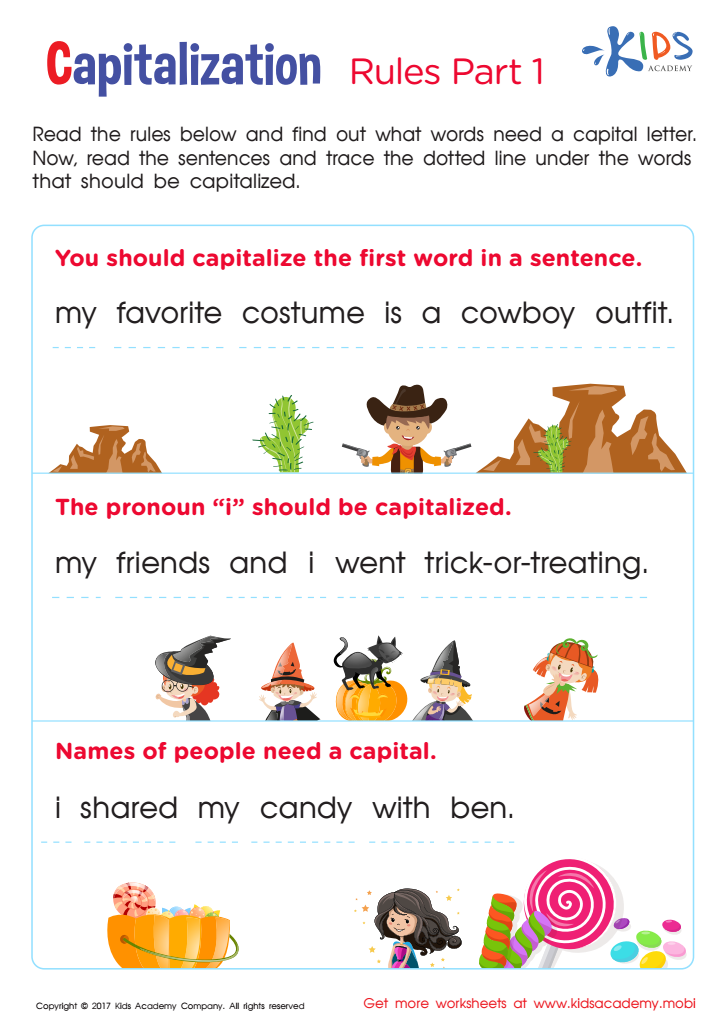Capitalization rules Normal Writing Worksheets for Ages 4-7
3 filtered results
-
From - To
Welcome to our "Capitalization Rules Normal Writing Worksheets" designed for children ages 4-7! These engaging and interactive worksheets help young learners master the essential rules of capitalization in a fun and enjoyable way. Each activity focuses on real-world writing scenarios, making it easier for kids to understand when to capitalize letters—like at the beginning of sentences, for proper nouns, and days of the week. Perfect for early grade teachers and parents alike, these worksheets promote foundational writing skills while fostering creativity. Watch your child's confidence grow as they practice and enhance their writing abilities with these exciting exercises!


Fix the Sentences Worksheet


Capitalization: To Capitalize or Not? Printable


Capitalization Rules: Part 1 Worksheet
Capitalization is an essential grammar rule that parents and teachers should emphasize to children aged 4-7. First, capital letters help children differentiate between various types of words, such as names, places, and the beginning of sentences. This understanding lays the foundation for good reading skills, making it easier for children to comprehend text and enhance their overall literacy.
Moreover, mastering capitalization rules fosters a sense of order and structure in writing. Clear rules create a framework that allows children to express their thoughts accurately and coherently. This clarity is crucial when sharing stories or information, helping them communicate effectively with others.
Additionally, learning capitalization rules cultivates attention to detail, a skill that benefits children throughout their education. Encouraging children to take pride in proper capitalization helps nurture an appreciation for language and its nuances.
Engaging children in fun, interactive activities that involve capitalization—like story writing or letter crafting—makes learning enjoyable. By instilling these rules early on, parents and teachers provide children with essential tools for effective communication, setting them on a path to academic success and fostering a love for reading and writing that can last a lifetime.
 Assign to My Students
Assign to My Students





















